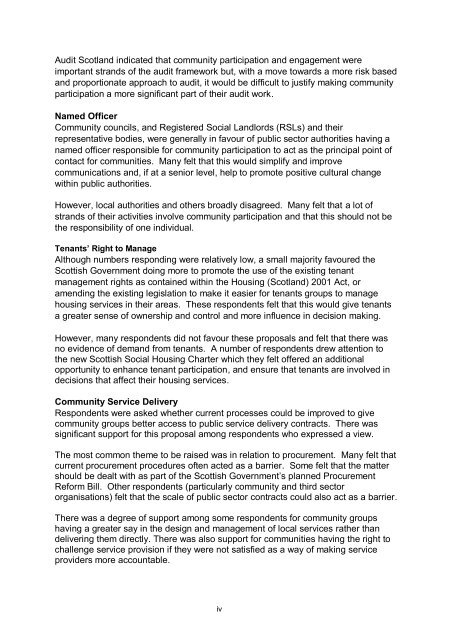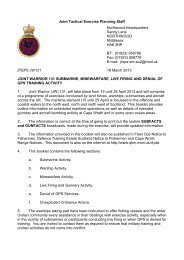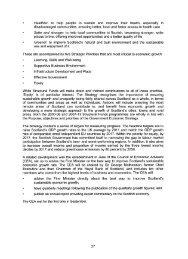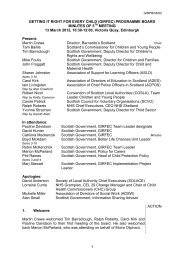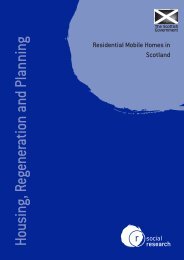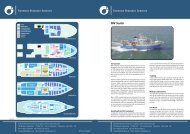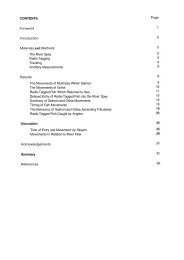Consultation On The Proposed Community Empowerment - Scottish ...
Consultation On The Proposed Community Empowerment - Scottish ...
Consultation On The Proposed Community Empowerment - Scottish ...
Create successful ePaper yourself
Turn your PDF publications into a flip-book with our unique Google optimized e-Paper software.
Audit Scotland indicated that community participation and engagement were<br />
important strands of the audit framework but, with a move towards a more risk based<br />
and proportionate approach to audit, it would be difficult to justify making community<br />
participation a more significant part of their audit work.<br />
Named Officer<br />
<strong>Community</strong> councils, and Registered Social Landlords (RSLs) and their<br />
representative bodies, were generally in favour of public sector authorities having a<br />
named officer responsible for community participation to act as the principal point of<br />
contact for communities. Many felt that this would simplify and improve<br />
communications and, if at a senior level, help to promote positive cultural change<br />
within public authorities.<br />
However, local authorities and others broadly disagreed. Many felt that a lot of<br />
strands of their activities involve community participation and that this should not be<br />
the responsibility of one individual.<br />
Tenants’ Right to Manage<br />
Although numbers responding were relatively low, a small majority favoured the<br />
<strong>Scottish</strong> Government doing more to promote the use of the existing tenant<br />
management rights as contained within the Housing (Scotland) 2001 Act, or<br />
amending the existing legislation to make it easier for tenants groups to manage<br />
housing services in their areas. <strong>The</strong>se respondents felt that this would give tenants<br />
a greater sense of ownership and control and more influence in decision making.<br />
However, many respondents did not favour these proposals and felt that there was<br />
no evidence of demand from tenants. A number of respondents drew attention to<br />
the new <strong>Scottish</strong> Social Housing Charter which they felt offered an additional<br />
opportunity to enhance tenant participation, and ensure that tenants are involved in<br />
decisions that affect their housing services.<br />
<strong>Community</strong> Service Delivery<br />
Respondents were asked whether current processes could be improved to give<br />
community groups better access to public service delivery contracts. <strong>The</strong>re was<br />
significant support for this proposal among respondents who expressed a view.<br />
<strong>The</strong> most common theme to be raised was in relation to procurement. Many felt that<br />
current procurement procedures often acted as a barrier. Some felt that the matter<br />
should be dealt with as part of the <strong>Scottish</strong> Government’s planned Procurement<br />
Reform Bill. Other respondents (particularly community and third sector<br />
organisations) felt that the scale of public sector contracts could also act as a barrier.<br />
<strong>The</strong>re was a degree of support among some respondents for community groups<br />
having a greater say in the design and management of local services rather than<br />
delivering them directly. <strong>The</strong>re was also support for communities having the right to<br />
challenge service provision if they were not satisfied as a way of making service<br />
providers more accountable.<br />
iv


